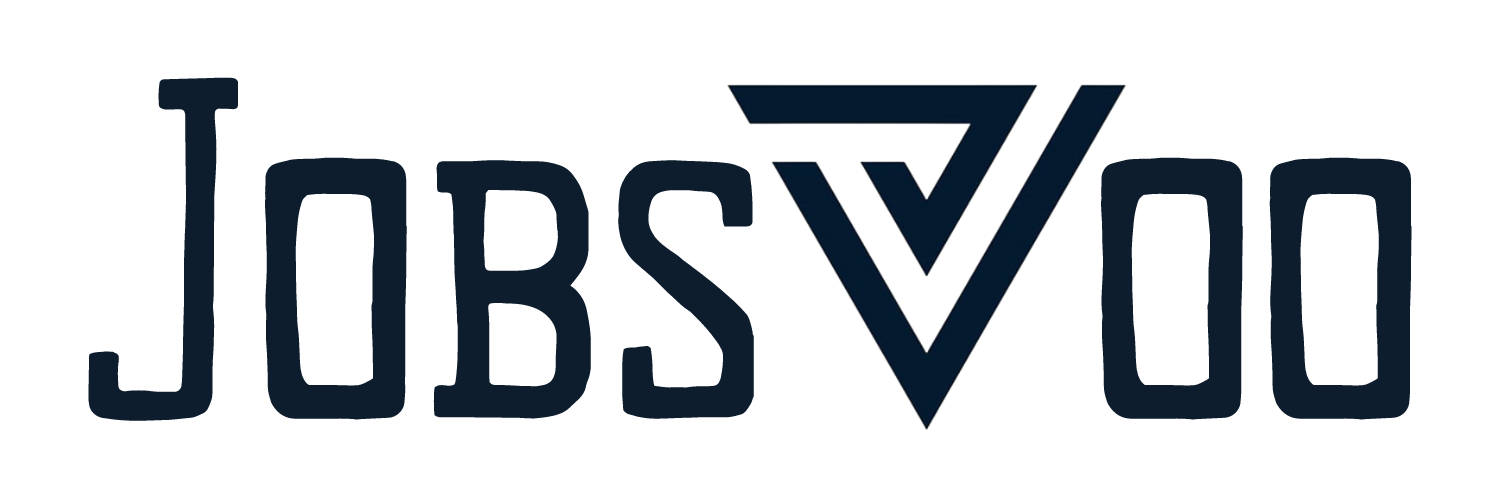Introduction
In today’s competitive job market, crafting a resume that stands out is more crucial than ever. Beyond education and experience, the skills you list can significantly influence a hiring manager’s decision. This comprehensive guide explores the essential skills to put on a resume for most jobs, ensuring you highlight the competencies that matter most to employers. From hard and soft skills to technical and interpersonal abilities, we’ll cover everything you need to enhance your resume and boost your chances of landing your dream job.
Understanding the Importance of Skills on a Resume
When employers sift through resumes, they look for specific skills that match their job requirements. Skills are divided into two main categories: hard skills and soft skills.
Defining Hard Skills and Soft Skills
Hard skills refer to technical abilities and knowledge that are specific to a particular job or industry. These are often measurable and acquired through education, training, or on-the-job experience. Examples include programming, accounting, or proficiency in foreign languages.
Soft skills, on the other hand, are interpersonal attributes that enable you to interact effectively and harmoniously with others. These include communication, leadership, and teamwork skills. Unlike hard skills, soft skills are often transferable across various job roles and industries.
The Role of Hard Skills in a Resume
Employers seek candidates with hard skills that align with the job description. These skills demonstrate your ability to perform specific tasks and are often a prerequisite for the role.
Top Hard Skills Employers Look For
- Data Analysis: With the rise of big data, the ability to analyze and interpret complex data sets is invaluable.
- Project Management: Skills in planning, executing, and overseeing projects are essential in many fields.
- Technical Proficiency: Familiarity with industry-specific tools and software can set you apart from other candidates.
Examples of Industry-Specific Hard Skills
In the tech industry, coding languages like Python, Java, and C++ are highly sought after. For marketing roles, skills in SEO, content creation, and social media management are crucial. In finance, expertise in financial modeling and accounting software is often required.
Soft Skills: The Backbone of Professional Success
While hard skills are essential, soft skills are equally important as they facilitate workplace harmony and efficiency.
Essential Soft Skills for Most Jobs
- Communication: Clear and effective communication is vital in any role.
- Teamwork: The ability to work well with others is crucial for team success.
- Problem-Solving: Employers value candidates who can think critically and solve issues independently.
How to Showcase Soft Skills on a Resume
Highlighting soft skills can be challenging, but integrating them into your resume’s experience section with specific examples can be effective. For instance, instead of simply stating “excellent communication skills,” describe a scenario where your communication skills positively impacted a project or resolved a conflict.
Technical Skills: Staying Relevant in the Digital Age
In today’s digital world, technical skills are more important than ever. Employers look for candidates who can navigate modern technology efficiently.
Most In-Demand Technical Skills
- Cybersecurity: With increasing cyber threats, knowledge of cybersecurity measures is highly valued.
- Software Development: Proficiency in coding and software development is crucial for tech roles.
- Data Management: Skills in managing and interpreting data are essential in many industries.
Tailoring Technical Skills to the Job Description
Customize your resume by highlighting technical skills that are specifically mentioned in the job posting. This demonstrates your suitability for the role and can help your resume pass through applicant tracking systems (ATS).
Communication Skills: Bridging Gaps and Building Relationships
Effective communication is at the heart of any successful professional interaction. It encompasses both verbal and written skills.
Verbal Communication Skills
Being able to convey information clearly and concisely in meetings, presentations, and casual conversations is a vital skill. It ensures that all team members are on the same page and can work towards common goals.
Written Communication Skills
Strong writing skills are necessary for drafting emails, reports, and other documents. Clear and precise writing prevents misunderstandings and ensures that information is accurately conveyed.
Analytical Skills: Problem Solving and Decision Making
Analytical skills involve the ability to collect and analyze information, solve problems, and make informed decisions.
Critical Thinking and Analytical Skills
Employers value critical thinking as it involves evaluating information and arguments, identifying patterns, and making logical connections. Analytical skills are particularly important in roles that require data interpretation and decision-making.
Examples of Analytical Skills on a Resume
Highlight your analytical abilities by detailing specific instances where you successfully analyzed data, identified trends, and made recommendations that benefited your organization.
Leadership Skills: Inspiring and Guiding Teams
Leadership skills are not just for managerial roles. They involve the ability to motivate, guide, and influence others towards achieving common goals.
Key Leadership Skills Employers Seek
- Decision-Making: Making sound decisions that benefit the team and organization.
- Delegation: Effectively assigning tasks to team members based on their strengths.
- Motivation: Inspiring and encouraging team members to perform at their best.
Demonstrating Leadership Skills Through Experience
Use your resume to showcase instances where you led projects, managed teams, or took initiative in the workplace. Highlight the outcomes of your leadership to demonstrate your effectiveness.
Organizational Skills: Managing Tasks Efficiently
Organizational skills involve the ability to manage time, tasks, and resources effectively. They are crucial for maintaining productivity and meeting deadlines.
Time Management and Prioritization
Employers look for candidates who can prioritize tasks, manage their time efficiently, and meet deadlines. These skills are essential for ensuring that projects are completed on time and within budget.
Organizational Skills Examples
Detail your experience in managing multiple projects, coordinating schedules, and maintaining order in high-pressure environments to showcase your organizational abilities.
Interpersonal Skills: Building Strong Professional Relationships
Interpersonal skills are crucial for building and maintaining professional relationships. They involve the ability to interact positively and work collaboratively with others.
Importance of Interpersonal Skills
Strong interpersonal skills lead to better teamwork, improved communication, and a more harmonious workplace. They are essential for roles that involve customer service, teamwork, and leadership.
Interpersonal Skills for Teamwork and Collaboration
Highlight your ability to work effectively with diverse teams, resolve conflicts, and contribute to a positive work environment. Use examples from your past experiences to illustrate these skills.
Adaptability and Flexibility: Thriving in a Dynamic Workplace
The ability to adapt to changing circumstances and remain flexible in your approach is highly valued by employers. It demonstrates your ability to handle unexpected challenges and thrive in dynamic environments.
Showcasing Adaptability on a Resume
Detail instances where you successfully adapted to new situations, learned new skills, or took on new responsibilities. Highlight your ability to remain calm and effective in the face of change.
Examples of Flexible Work Practices
Describe how you have adapted to remote work, managed shifting priorities, or taken on diverse roles within a company. These examples can demonstrate your flexibility and adaptability.
Customer Service Skills: Ensuring Client Satisfaction
Customer service skills are crucial for roles that involve direct interaction with clients. They involve the ability to provide excellent service and ensure customer satisfaction.
Key Customer Service Skills
- Empathy: Understanding and addressing customer needs and concerns.
- Patience: Remaining calm and patient in challenging situations.
- Problem-Solving: Resolving customer issues effectively and efficiently.
Examples of Customer Service Experiences
Detail your experience in handling customer inquiries, resolving complaints, and providing exceptional service. Highlight any positive feedback or achievements related to customer satisfaction.
Creativity and Innovation: Driving Change and Improvement
Creativity and innovation involve the ability to think outside the box, generate new ideas, and drive change. These skills are essential for roles that require problem-solving and strategic thinking.
Highlighting Creative Problem-Solving
Describe instances where you used creative thinking to solve problems, improve processes, or develop new products. Highlight the positive outcomes of your innovative ideas.
Innovative Thinking in Professional Settings
Showcase your ability to think strategically and innovate by detailing projects where you introduced new ideas, improved efficiency, or developed new strategies.
Foreign Language Skills: Expanding Global Reach
In a globalized world, foreign language skills can set you apart from other candidates. They demonstrate your ability to communicate with a diverse range of clients and colleagues.
Benefits of Bilingualism
Being bilingual can open up opportunities for roles that require interaction with international clients or colleagues. It can also demonstrate your cultural awareness and adaptability.
Including Language Proficiency on a Resume
List your language skills, including your proficiency level, on your resume. Detail any instances where you used these skills in a professional setting to highlight their relevance.
Technical Proficiency: Using Tools and Software
Technical proficiency involves the ability to use industry-specific tools and software effectively. It is essential for roles that require technical expertise.
Common Technical Tools and Software Skills
- Microsoft Office: Proficiency in Excel, Word, and PowerPoint is often required.
- Project Management Tools: Familiarity with tools like Asana, Trello, or JIRA.
- Programming Languages: Knowledge of languages like Python, Java, or HTML.
Listing Technical Proficiency on a Resume
Include a technical skills section on your resume to list your proficiency with relevant tools and software. Highlight any certifications or training that demonstrate your expertise.
Professionalism: Maintaining a High Standard of Work
Professionalism involves maintaining a high standard of work and demonstrating integrity, reliability, and a strong work ethic.
Key Professional Attributes
- Punctuality: Arriving on time and meeting deadlines.
- Dependability: Being reliable and consistent in your work.
- Integrity: Demonstrating honesty and ethical behavior.
Showcasing Professionalism in Job Applications
Detail instances where you demonstrated professionalism in your previous roles. Highlight your commitment to maintaining high standards and your dedication to your work.
Attention to Detail: Ensuring Accuracy and Precision
Attention to detail involves being thorough and precise in your work. It is crucial for roles that require accuracy and careful attention to detail.
Importance of Detail-Oriented Work
Employers value candidates who can ensure accuracy and prevent errors. Attention to detail is essential for maintaining quality and consistency in your work.
Examples of Attention to Detail on a Resume
Describe instances where your attention to detail led to successful outcomes, such as identifying errors, improving processes, or ensuring high-quality work.
Project Management Skills: Leading Projects to Success
Project management skills involve the ability to plan, execute, and oversee projects effectively. They are essential for roles that require leadership and coordination.
Essential Project Management Skills
- Planning: Developing detailed project plans and timelines.
- Execution: Coordinating resources and tasks to ensure project completion.
- Monitoring: Tracking progress and making adjustments as needed.
Demonstrating Project Management Experience
Highlight your experience in leading projects, managing teams, and achieving project goals. Detail the specific skills and strategies you used to ensure successful project outcomes.
Sales and Marketing Skills: Driving Business Growth
Sales and marketing skills involve the ability to promote products or services and drive business growth. They are essential for roles in sales, marketing, and business development.
Key Sales and Marketing Competencies
- Customer Relationship Management: Building and maintaining strong client relationships.
- Market Analysis: Understanding market trends and customer needs.
- Sales Techniques: Using effective strategies to close deals and increase sales.
Highlighting Sales and Marketing Achievements
Detail your achievements in sales and marketing, such as meeting or exceeding targets, launching successful campaigns, or increasing market share. Use specific metrics to demonstrate your impact.
Research Skills: Gathering and Analyzing Information
Research skills involve the ability to gather, analyze, and interpret information. They are crucial for roles that require data-driven decision-making.
Importance of Research Skills
Employers value research skills as they enable you to make informed decisions and provide valuable insights. These skills are essential for roles in academia, market research, and business analysis.
Research Skills in Various Professions
Highlight your experience in conducting research, analyzing data, and presenting findings. Detail specific projects or studies you have completed to demonstrate your expertise.
Financial Management Skills: Handling Budgets and Resources
Financial management skills involve the ability to manage budgets, resources, and financial planning. They are essential for roles that require financial oversight and decision-making.
Key Financial Management Skills
- Budgeting: Developing and managing budgets effectively.
- Financial Analysis: Analyzing financial data to inform decisions.
- Resource Allocation: Allocating resources efficiently to achieve financial goals.
Examples of Financial Management Experience
Detail your experience in managing budgets, conducting financial analysis, and making financial decisions. Highlight any achievements or improvements you made in financial management.
Teamwork Skills: Collaborating for Success
Teamwork skills involve the ability to work effectively with others to achieve common goals. They are essential for roles that require collaboration and cooperation.
Importance of Teamwork in the Workplace
Strong teamwork skills lead to better collaboration, increased productivity, and a more positive work environment. They are crucial for roles that involve working in teams or managing group projects.
Examples of Teamwork Skills on a Resume
Highlight your experience in working with diverse teams, resolving conflicts, and contributing to team success. Use specific examples to illustrate your teamwork abilities.
Problem-Solving Skills: Overcoming Challenges
Problem-solving skills involve the ability to identify issues, analyze problems, and develop effective solutions. They are essential for roles that require critical thinking and decision-making.
Highlighting Problem-Solving Abilities
Detail your experience in identifying and solving problems, whether through innovative thinking, strategic planning, or effective decision-making. Highlight the positive outcomes of your problem-solving efforts.
Examples of Problem-Solving on a Resume
Describe specific instances where you successfully resolved issues, improved processes, or developed creative solutions. Use metrics and outcomes to demonstrate your effectiveness.
Writing Skills: Crafting Clear and Compelling Content
Writing skills involve the ability to create clear, concise, and engaging content. They are essential for roles that require communication, documentation, or content creation.
Key Writing Competencies
- Clarity: Writing clearly and concisely to convey information effectively.
- Engagement: Creating engaging content that captures the reader’s attention.
- Accuracy: Ensuring that your writing is free of errors and accurately conveys the intended message.
Showcasing Writing Skills in Professional Settings
Highlight your experience in writing reports, emails, articles, or other documents. Use specific examples to demonstrate your writing skills and the positive impact of your work.
Conclusion
Crafting a resume that effectively highlights your skills is essential for standing out in the competitive job market. By understanding the importance of both hard and soft skills, and showcasing your abilities through specific examples, you can create a resume that impresses employers and boosts your chances of landing your dream job. Remember to tailor your resume to the job description, highlighting the skills that are most relevant to the role. With the right skills and a well-crafted resume, you’ll be well on your way to professional success.





